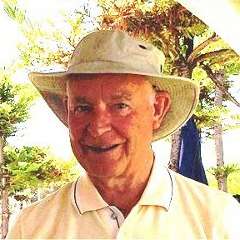Charles Gounod, best known for his church music (particularly his Ave Maria), brings many religious themes to his Faust – a story of temptation given in to, of seduction by the devil, of play now and pay later, of redemption and of damnation. This State Opera of South Australia production began life over eleven years ago with London’s Royal Opera. Like grandfather’s axe is still the same axe, this is still the same production, yet there have been many minor developments and refinements. Much of the comic impishness and overt religiosity has been rounded out, replaced by a more sober story of everyman and how easy it is to be enticed by subtle refined temptation and be in free fall down the slippery slope to disaster even before we are fully aware of where our choices are heading. It is also the story of resentment about growing old, seeing lost opportunities slipping out of reach and of the consequence of not being able to accept it.
This performance of Gounod’s Faust was awash with lovely music beautifully performed – strident marching tunes, sweet memorable melodies, inviting duets, trios and quartets, bumptious ballets and clever placement of the chorus in unexpected locations (the concluding Christ est resscuscité! resurrection hymn sung from the top balcony, the voices lifting the audience, as well as the soul of Marguerite, upwards, while on stage in the organ console stood a character in black top hat with large goose wings strapped to his back – I couldn’t quite work that one out – maybe he was supposed to be a swan, and was making a connection with Wagner’s Lohengrin, or even Parsifal.)
Throughout this performance James Egglestone’s Faust commanded the title role. There was a presence about him which saw him dominant all night, his rich, sweet tenor voice soaring with authority. He was ably assisted by the lovely Kate Ladner as Marguerite who sang with feeling and beauty, particularly in the Song of the King of Thule followed by the Jewel Song, even though the contents of Satan’s jewel box looked a lot like a bowl of Cadbury Favourites. Teddy Tehu Rhodes presented a suave sophisticated Méphistophélès – could the invitation to damnation and ruin ever seem so refined and respectable? After all this it was a surprise to find his Méphistophélès was also a cross-dresser, in black ball-gown and with tattoos on his left forearm, as he got into the swing of Walpurgis Night partying. His resonant bass-baritone was always attractive, uneven at times, but most appealing in his Song of the Golden Calf and his Serenade outside Marguerite’s house in Act IV. Rhodes has the gift of a beautiful rich voice and an appealing naturalness in the way he commands the stage.
Constantly attractive was the sweet lyric mezzo soprano of Cherie Boogaart as Siébel. It was far and away the most impressive performance from Boogaart I have heard so far. She brought her character to life, showing a genuine care for Marguerite, and with left legged limp to suggest why Siébel had stayed home from battle. Her beautiful “Faites-lui mes aveux” as Siébel made do with a few handy flowers (forget-me-nots?) growing out of cracks on the steps was a show stopper of inspirational excellence. Michael Honeyman was outstanding as Valentin, Marguerite’s unforgiving brother, with an unusually appealing baritone. He sang the complex role truly and with consistency all night. Joshua Rowe as Wagner, Valentin’s friend, and Desiree Frahn as Marguerite’s guardian rounded off the impressive cast.
This Faust is successfully located in late 19th century France, with grand, finely detailed sets designed by Sir Charles Edwards. As this is an Australian Opera Conference project, sets are built to fit the stage of all four major Australian opera companies, and so are scaled down to accommodate the smallish Sydney Opera House stage, where it has already been performed. This was a pity, for this production had so much potential waiting to be unleashed were it able to flow over onto a larger stage. Lavish costumes, originally designed by Brigitte Reiffenstuel and greatly inspired by the French impressionists, added colour.
Chorus Master Timothy Sexton brilliantly coaxed the expanded State Opera Chorus to many moments of excellence, and Kynan Johns, returning to Adelaide, conducted the ever-impressive Adelaide Symphony Orchestra in fine sound to enrich the performance, no place more so than when their delicate playing went hand in glove with Faust’s suave seduction of Marguerite in Act III.
This is a production that has travelled well, and will continue to delight patrons wherever in the world they see it for many years to come.




